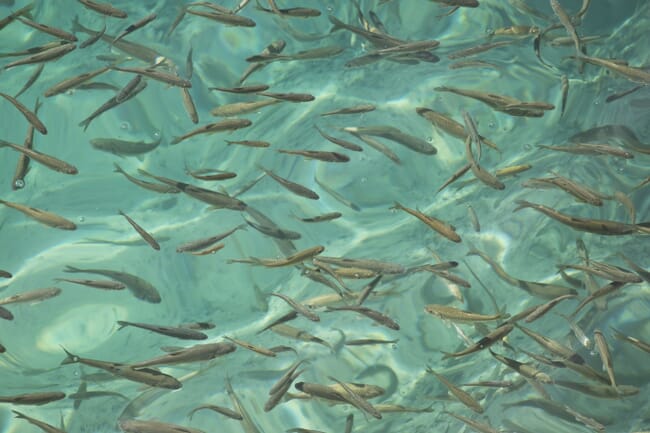The trials, which were undertaken by Aller Aqua and marine ingredients producer TripleNine, aimed to identify components of marine raw materials that can benefit performance in terms of fish health and growth, as well as improve the sustainability of the feeds.

© Aller Aqua
From first feeding after hatch, rainbow trout were fed different test diets containing functional marine ingredients until they reached fingerling size.
According to a statement released by Aller Aqua today: “The functional ingredients led to positive effects on fish growth performance and health and provided excellent survival rates in the test groups. This fulfils the initial aim of maximising feed performance through targeted use of the functional properties of marine ingredients.”
“We appreciate that TripleNine, a well-known producer of marine ingredients, specialises in value-adding products. The ones we have tested are nutritionally valuable fish feed ingredients but using them as concentrated functional ingredients increase their impact. Our trials confirm this,” explains Dr Hanno Slawski, R&D director at Aller Aqua,
Chief commercial officer at TripleNine, Kenneth Storbank, states: “We are very happy that the trials confirmed our intentions with 999Vital, which is the name for the product. Ensuring optimal efficiency by concentrating the functional ingredients ensures that we will contribute to heightening both performance and sustainability in the aquaculture sector. We have a good collaboration with Aller Aqua, and it is a good way for us to get our products commercially tested and solidly documented.”
In future, 999Vital will serve as set functional ingredients in Aller Aqua’s starter feeds. Continuous testing will further evaluate effects in grow-out and broodstock stages of fish lifecycles for possible later application.
The marine ingredients are locally produced, which fits into Aller Aqua’s policy of buying regional raw materials when feasible. Concentrating the functional ingredients in marine raw materials ensures minimum waste and optimum effect from fewer raw materials. This reduces the aquaculture value chain’s reliance on marine raw materials, as a lower level is needed, and at the same time, less waste ensures a better water environment.


